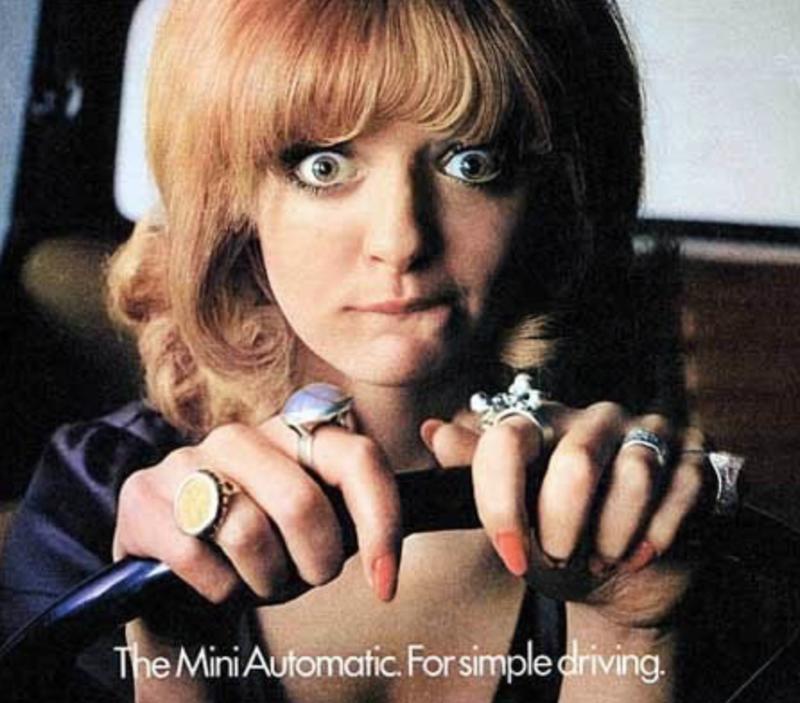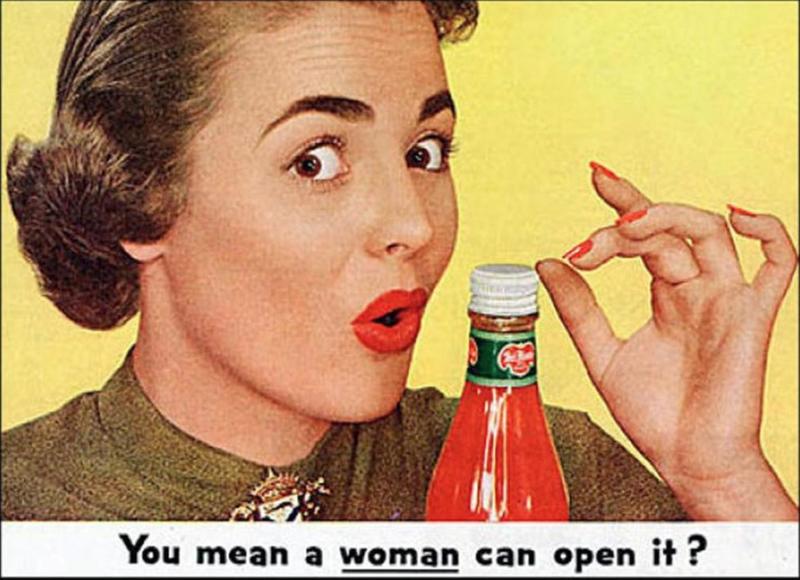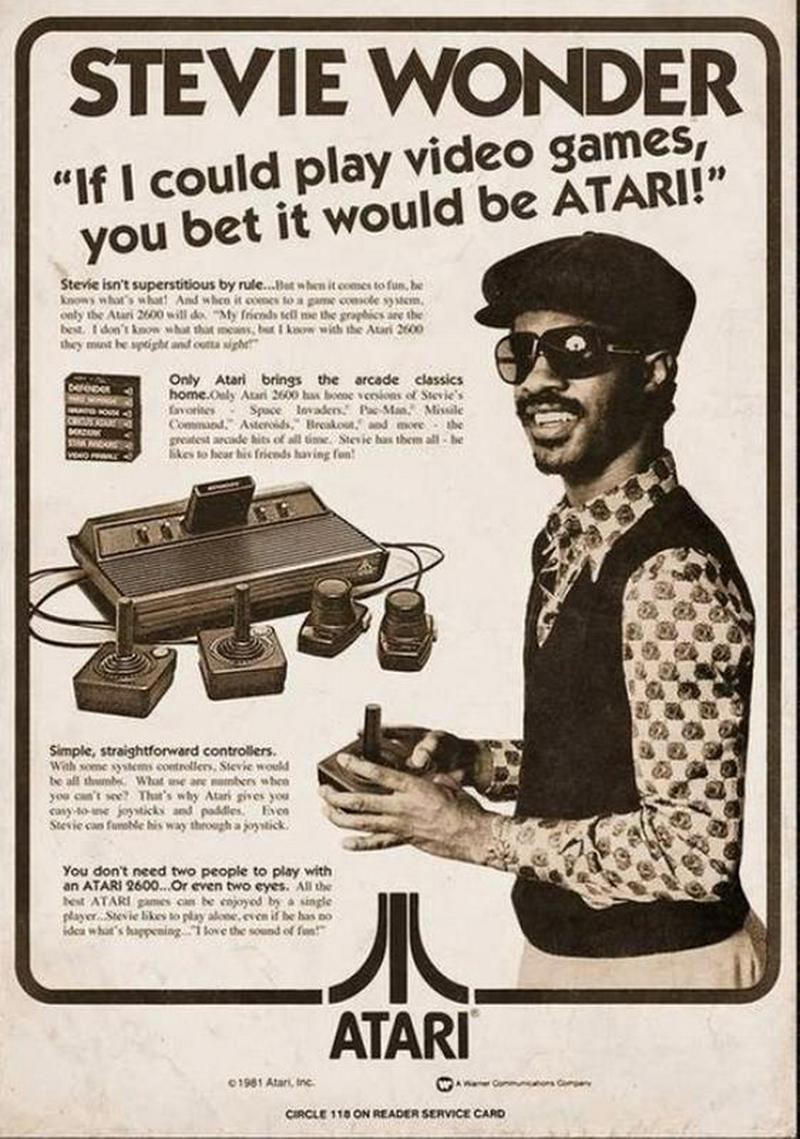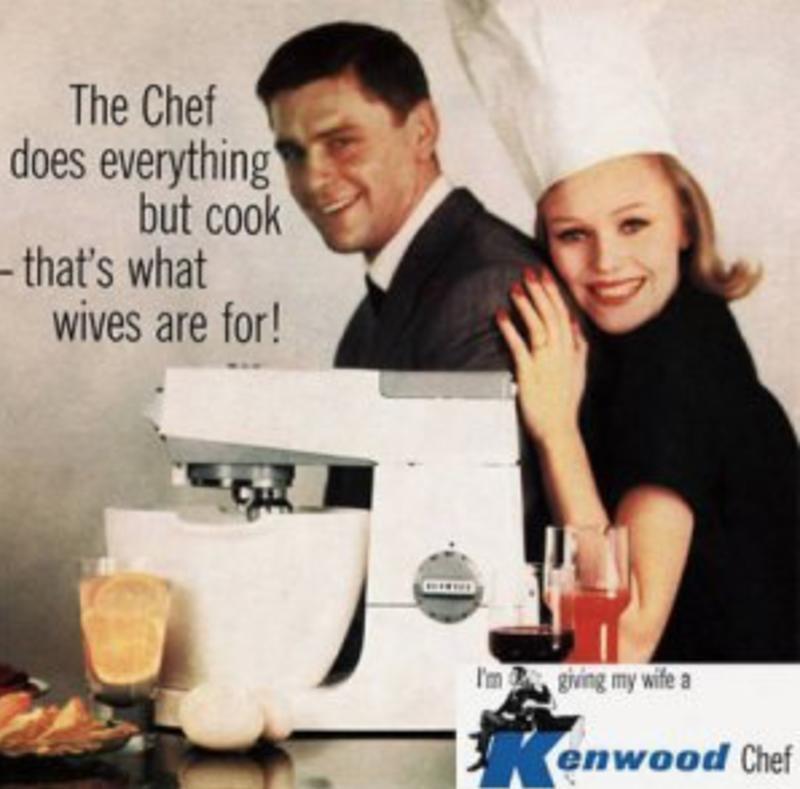Unforgettable Vintage Ads: Exploring Controversial Classics
The Volkswagen Mini Automatch
Get ready to explore the clever marketing, cultural snapshots, and enduring creativity found within these timeless advertisements. From the simple charm of 1950s print ads to the bold campaigns of the '60s and '70s, each slide offers a glimpse into our past, shedding light on changing tastes, values, and societal norms. Join us in celebrating the charm and innovation of vintage ads, which still resonate today despite their departure from modern standards.

Unforgettable Vintage Ads: Exploring Controversial Classics
By Sophia Maddox | March 1, 2024
The Volkswagen Mini Automatch
Get ready to explore the clever marketing, cultural snapshots, and enduring creativity found within these timeless advertisements. From the simple charm of 1950s print ads to the bold campaigns of the '60s and '70s, each slide offers a glimpse into our past, shedding light on changing tastes, values, and societal norms. Join us in celebrating the charm and innovation of vintage ads, which still resonate today despite their departure from modern standards.

Volkswagen had a number of ads that poked fun at women for being bad, nervous, distracted drivers. This wide-eyed, terrified-looking woman seems afraid to be behind the wheel but Volkswagen can help her out and put her fears to rest with their easy automatic transmission. We are sure the car company was only trying to solve what they perceived to be a real problem…terrible female drivers…but the resulting ad just comes across as insulting.
Alcoa Aluminum

Ah, yes…women. So weak and frail that they need a big, strong man to help them with those difficult household chores, like opening a catsup bottle. Alcoa Aluminum is, of course, offering a super helpful product and, yea, we've all struggled with opening bottles from time to time. But this ad presents that innovative product in such a stereotyped way that it comes across as offensive. At least it does as we look back at it fifty-plus years later.
Panasonic Ad

It sure looks as though this ad is poking fun at women who have lost their hair, perhaps due to chemotherapy or alopecia. If the intent was to try to sell hair dryers to anyone and everyone one…because, hey, who wouldn’t want a hair dryer?...this ad might have carried things a bit too far.
Stevie Wonder For Atari
 Did this ad just poke fun at a person with a disability? Yes, it did! Superstar recording artist Stevie Wonder has been blind since infancy. He hasn’t let that disability stop him from becoming one of America’s all-time great singer/songwriters. But asking Stevie to be the pitch man for a video gaming system seems like quite the stretch. Surely there was another celebrity spokesman that Atari could have used. Still, it is humbling and inspiring that Stevie is able to joke about his disability.
Did this ad just poke fun at a person with a disability? Yes, it did! Superstar recording artist Stevie Wonder has been blind since infancy. He hasn’t let that disability stop him from becoming one of America’s all-time great singer/songwriters. But asking Stevie to be the pitch man for a video gaming system seems like quite the stretch. Surely there was another celebrity spokesman that Atari could have used. Still, it is humbling and inspiring that Stevie is able to joke about his disability. Kenwood Chef

Even though women were advocating for an equal share of the workforce, societal norms still dictated that women be dutiful housewives. The sixties and seventies were filled with cultural references sharing the belief that women should stay at home, keeping house and raising the children, and advertising played into this old-fashioned notion with ads like this one that states that women are supposed to cook for their husbands. It seemed as though advertising companies were doing their part to reverse any progress that women’s lib made by continuing with sexist ads like this one.
Coca-Cola

Coca-Cola was once marketed as a headache remedy. If we remember that the original formula for Coke contained cocaine, then we could possibly believe this claim. Coke also contains caffeine, and if you have ever tried to kick a caffeine addiction, you know that there are days of headaches in store for you as the caffeine leave your system. The best relief for a caffeine withdrawal headache is nice, big glass of ice-cold Coca-Cola.
Heroin. Yes, That Heroin

Nothing quiets a cough like heroin! At least that's what this old ad claims. It is even from Bayer, a trusted pharmaceutical company that has been in business for a long time. Heroin has a long history of medicinal uses, but it is also highly addictive and dangerous when not used properly. This is why, in 1924, heroin joined a list of other drugs to be banned in the United States.
Divorce

The inability to cook must have been a divorce-able offense back when this ad was created. Of course, the role of a housewife was to cook, clean, and care for the children, so if she shirked her duties in one of these areas, it was only natural for the husband to want to 'fire' her. But this ad urges husbands to keep their ineffective wife We aren’t sure what this ad is trying to promote. Maybe is it an anti-divorce PSA or an ad for take-out dining.
Mentos

This ad claims that Albert Einstein, the famed scientist, was endorsing Mentos. The fact is that Einstein never endorsed any products, but that didn’t stop this ad, and many others, from using his image.
During the 1940s, licensing laws were lax or unclear, allowing for companies to use a person’s image without having to get their permission and without having to pay them. Fortunately, those laws are much clearer now.
Parker Pens

I am sure that the CEOs of Parker Pens thought they were creating a product that solved a problem when this introduced their new girl-sized pens, but in fact, they were feeding into the belief that females were smaller and weaker and not capable of competing in a man’s world. The smaller pens that were supposed to be designed to fit a woman’s smaller hand did not help to promote gender equality. If anything, it tried to show that women could not keep pace with men unless they had special accommodations made for them, like diminutive office supplies.
Captain Morgan

Do that today and you'll probably get slapped. When this ad came out, however, the word was not viewed that way. Captain Morgan's was using an old pirate phrase, 'yo ho ho', to illustrate the swashbuckling legend of Captain Morgan. The 17th century Caribbean pirate, Captain Henry Morgan, for which the rum is named, probably used the phrase yo ho ho when he was hauling rope or scrubbing the deck or any other tedious job.
Cellophane

There’s a reason why there are warning labels on plastic bags saying not to put small children inside the bags. It is because people actually did what ads like this suggested and put their infants in air tight plastic bags. Really! The ad copy promotes the sanitary qualities of the cellophane, noting that it provides a great protection from dirt and bacteria. We hope that any parents who saw this ad were able to use common sense and keep their children away from the cellophane.
Kellogg's

Here is another ad that seems to push the idea that women should be at their happiest when they are cooking, cleaning, doing laundry, and caring for the children. How does she do it all? Is she some kind of wonder woman? No…she’s just loaded up with vitamins and energy pills! According to this ad, the vitamin pills will even give the happy housewife enough energy to keep on cleaning, even after her husband gets home from his 9-to-5 job. On top of that, the pills will even make her prettier! It sounds far-fetched, but the ad states that a husband’s number one desire is to have a cute, hard-working cleaning-machine for a wife.
Datacomp

With her long, tanned legs and short dress, this young lady doesn’t fit the image of a computer nerd at all. Office machines were revolutionizing the American work place in the sixties, but as this ad shows, no matter the innovation, there should be a sexy secretary on hand in every office. Ads, commercials, and even TV shows, movies, and books, of the decade often featured the sexy secretary trope to play on the virile businessman’s hot secretary fantasy.
Gold Dust Washing Powder
 At last…and ad that understands that a woman’s work is never done and that the average 1890s housewife put in more hours of work than her husband. This ad notes that men work eight hours a day and women work fourteen hours a day. What is didn’t mention is that the men of the day typically had Saturday and Sunday off, while the housewife was still supposed to cook and clean and care for her children, seven days as week. We doubt that the washing powder being advertised here is miraculous enough to cut six hour off her day, though.
At last…and ad that understands that a woman’s work is never done and that the average 1890s housewife put in more hours of work than her husband. This ad notes that men work eight hours a day and women work fourteen hours a day. What is didn’t mention is that the men of the day typically had Saturday and Sunday off, while the housewife was still supposed to cook and clean and care for her children, seven days as week. We doubt that the washing powder being advertised here is miraculous enough to cut six hour off her day, though. Hardee's

This is truly from another era. Hardee's is essentially saying that fast food is for bachelors who don't have a woman around to cook for them. After all, if a man was married, he would have a wife in the kitchen, spending all her time preparing food for the husband and he would, therefore, have no need for fast food.
Schlitz Beer

It is a running joke…a housewife who can’t cook and burns all the dinners. Advertisers seem to delight in mocking the failure of a housewife in their ads. It is as if they are reminding to housewife that she has one job…and she messed it up. . The husband in this scenario is not putting the wife across his knee and spanking her as punishment for her burned dinner, at least. In fact, he is pointing out the plus side…that the beer was not burned, too. Looks like this family will be pulling a Bukowski and having a liquid dinner.
Volkswagen

Even car manufacturers hopped on the bandwagon to make fun of terrible women drivers. In this advertisement, the company implies that, if anyone in the family is going to get into a fender bender, it would be the wife. The age-old joke about women being the worst drivers is sexist and archaic. You know why insurance rates are higher for male drivers than they are for female drivers? Because men are statistically more likely to get into car accidents. Take that, Volkswagon.
Warner's Little Fibber

This ad doesn’t preach a “you’re beautiful just the way you are” message. Just the opposite, in fact. It is telling pear-shaped women, with smaller busts and larger bottoms, that their body shape is not desirable and should, therefore, be changed. Wire-reinforced girdles and padded bras will conceal the wearer’s God-given body and present her is a more flattering silhouette. This ad is a prime example of how advertisers have defined beauty standards and caused generations of women to suffer from poor body image and low self-esteem.
Total Cereal

According to this ad, Total Cereal will solve two of the biggest problems facing 1960s housewives...how to stay slim and how to get all the housework done. During this era, there was a certain mold that women were expected to fit in to...certain societal expectations. One was that they look young, slender, and stylish. The other was that they keep an immaculate house. This cereal brand played into these expectations by telling housewives they could watch their weight while also having the energy they needed to clean all day long.
Dormeyer Ad

We were never fans of appliances as Christmas or birthday gifts…it just seems uncaring and wrong to give someone a work-related tool instead of a personal gift. But this ad carries it even further by providing a list of kitchen appliances and instructions telling the housewife to circle the items she wants and give it to her husband. It even suggests shedding a few tears if necessary to get what is wanted.
Lux Stockings

After marriage, it is not uncommon for the couple to be more relaxed with each other and become sloppier in their personal appearances. In this ad, the stockings manufacturer is admonishing wives who let their appearance down after the wedding by reminding them that husbands love wives with run-free stockings. Even when she is just working around the house, the wife should wear hose that are fresh, clean, and hole-free. And she should take care to keep them snag-free as she cooks and cleans and chases the children around.
Listerine

Divorce was such a stigma in the past that advertisers used it as a way to sell products. It was simple...they put the fear of divorce into a housewife and she would be convinced to purchase the product. In this case, the product is Listerine for bad breath. The ad tried to convey the idea that a husband will be driven away from his loyal and loving wife and into the arms of another woman if his wife has bad breath. The solution to save ones marriage is simple... Listerine mouth wash.
Jade East After Shave

Culturally insensitive, this product of aftershave, called Jade East, is using an Asian model to play on the product’s name, which could appear to be an Asian name. Jade, a semi-precious stone, was often used in China and by adding the word ‘east’ to the title, the aftershave takes on an exotic façade. Just a huge bummer all around with this ad.
Hoover

The assumption here is the the average housewife loves vacuuming so much that she dreams of getting a new, state-of-the-art vacuum cleaner for Christmas.
Personally, we would be devastated to find such a present under the tree on Christmas morning. It is almost as if Santa is saying, "Merry Christmas, now get back to work!" Or worse yet, implying that the housekeeping standards are lax, therefore the housewife needs some extra assistance to properly do her duty. Either way, we'd rather have a lump of coal.
No comments: